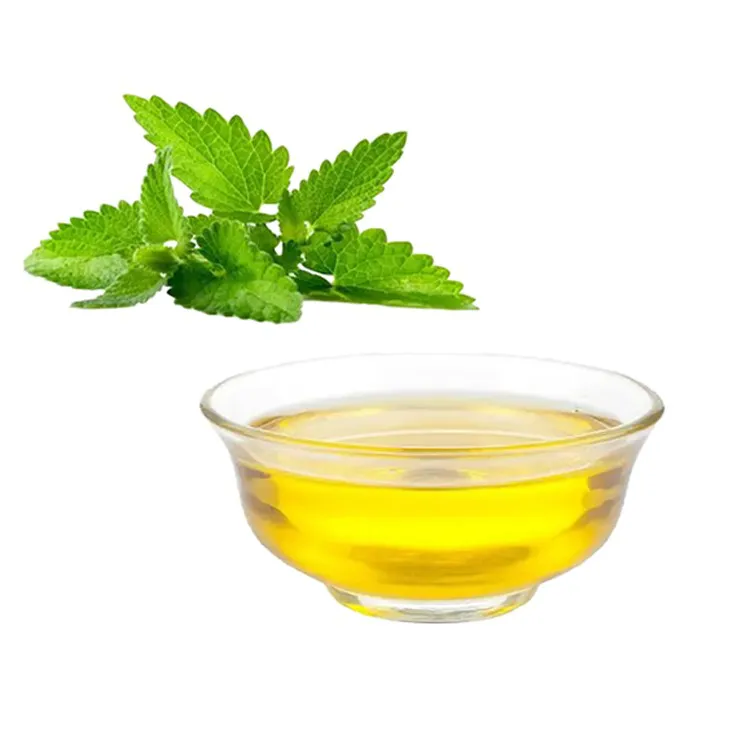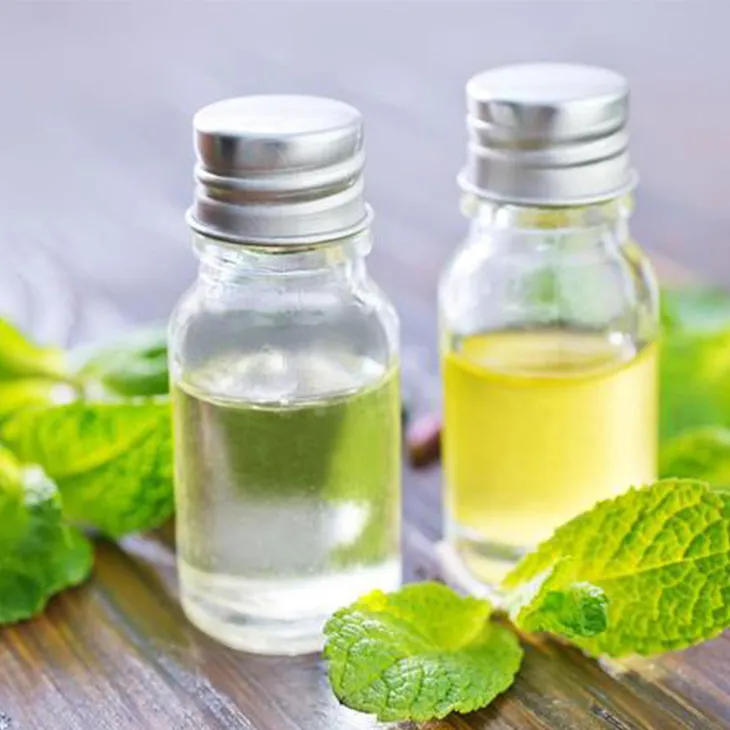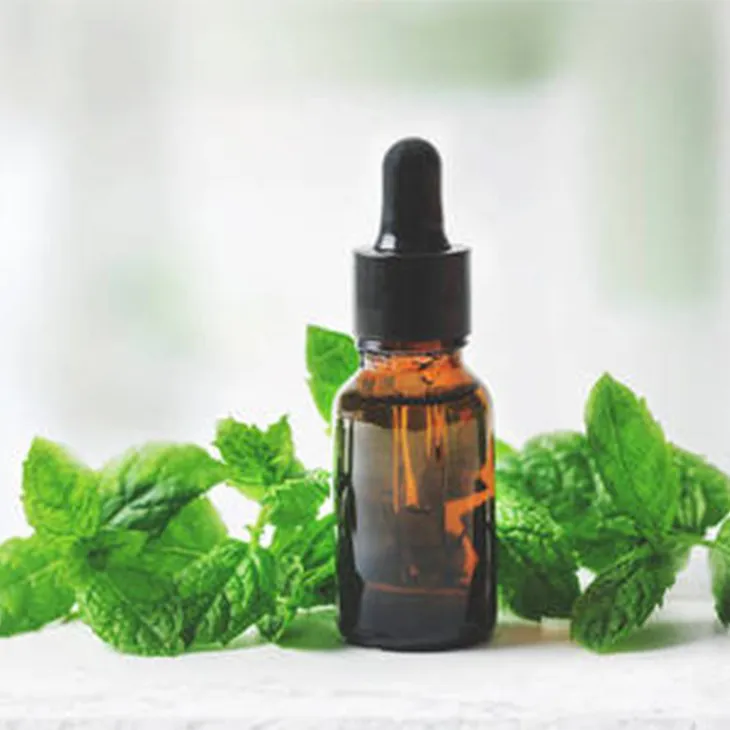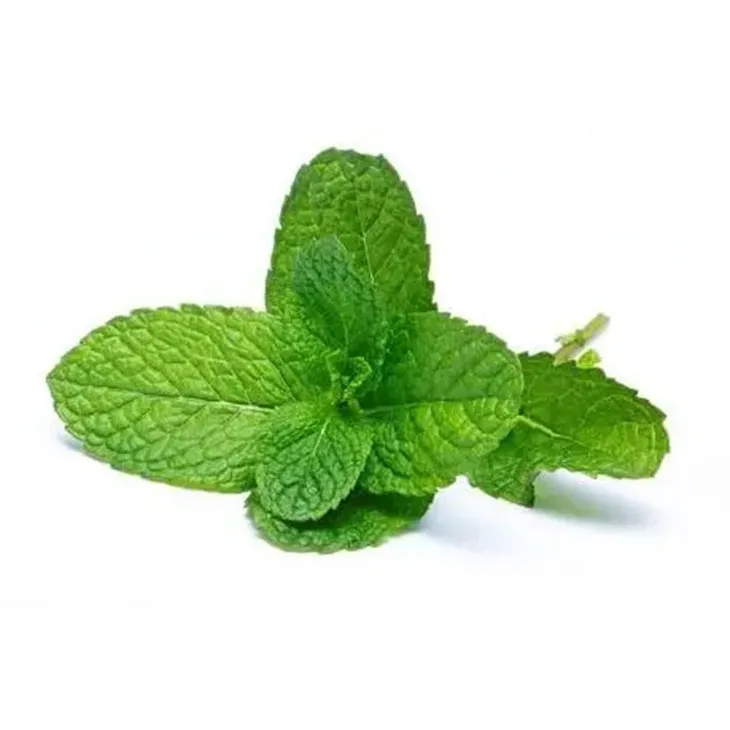- 0086-571-85302990
- sales@greenskybio.com
Peppermint oil can reduce high blood pressure.
2024-11-13

1. Introduction
Hypertension, or high blood pressure, is a prevalent health condition that affects a significant portion of the global population. It is a major risk factor for various cardiovascular diseases, including heart attacks and strokes. While there are numerous pharmaceutical treatments available, there has been increasing interest in natural remedies. Peppermint Oil has emerged as a potential candidate in the management of high blood pressure. This article will explore how Peppermint Oil may lower high blood pressure, delving into its mechanisms, such as vasodilation and stress reduction, and examining the research behind it.

2. The Basics of Hypertension
2.1 Definition and Diagnosis
Hypertension is defined as having a consistently elevated blood pressure above normal levels. Blood pressure is measured in millimeters of mercury (mmHg) and is expressed as two numbers: systolic pressure (the pressure in the arteries when the heart contracts) over diastolic pressure (the pressure in the arteries when the heart is at rest). Normal blood pressure is typically considered to be around 120/80 mmHg. Hypertension is generally diagnosed when blood pressure readings are consistently 130/80 mmHg or higher.2.2 Causes and Risk Factors
There are multiple factors that can contribute to the development of hypertension. These include genetic factors, lifestyle factors such as a diet high in sodium and low in potassium, lack of physical activity, excessive alcohol consumption, and smoking. Additionally, certain medical conditions like kidney disease, hormonal disorders, and obesity can also increase the risk of developing high blood pressure.2.3 Consequences of Untreated Hypertension
If left untreated, hypertension can lead to serious health complications. It can cause damage to the blood vessels, heart, kidneys, and eyes over time. The heart may have to work harder to pump blood against the increased pressure, leading to an enlarged heart or heart failure. It also increases the risk of developing atherosclerosis (hardening and narrowing of the arteries), which can result in heart attacks and strokes.
3. Peppermint Oil: An Overview
3.1 Source and Extraction
Peppermint oil is derived from the peppermint plant, which is a hybrid of watermint and spearmint. The oil is extracted through a process of steam distillation of the plant's leaves. This results in a concentrated oil that contains a variety of chemical compounds, including menthol, which gives peppermint its characteristic smell and cooling sensation.3.2 Traditional Uses
Historically, peppermint has been used for a variety of medicinal purposes. In traditional medicine, it has been used to treat digestive problems such as indigestion, nausea, and irritable bowel syndrome. It has also been used topically to relieve pain and itching. The use of peppermint for its potential effects on blood pressure is a more recent area of exploration.
4. Mechanisms by Which Peppermint Oil May Lower Blood Pressure
4.1 Vasodilation
One of the proposed mechanisms by which peppermint oil may reduce blood pressure is through vasodilation. Vasodilation is the widening of blood vessels, which allows for easier blood flow and reduces the resistance against which the heart has to pump. Peppermint oil may stimulate the release of nitric oxide in the blood vessels. Nitric oxide is a signaling molecule that relaxes the smooth muscle cells in the vessel walls, causing them to dilate. This dilation can lead to a decrease in blood pressure.4.2 Stress Reduction
Another way peppermint oil might affect blood pressure is through stress reduction. High stress levels are often associated with elevated blood pressure. Peppermint oil has been shown to have a calming effect on the body. It may act on the nervous system, reducing the activity of the sympathetic nervous system, which is responsible for the "fight - or - flight" response. When the sympathetic nervous system is overactive, it can cause an increase in heart rate and blood pressure. By reducing this activity, peppermint oil may help lower blood pressure.4.3 Anti - Inflammatory Effects
Inflammation in the body can also play a role in hypertension. Peppermint oil has anti - inflammatory properties. Chronic inflammation can lead to endothelial dysfunction, which is a disruption in the normal function of the cells lining the blood vessels. This can result in increased vasoconstriction and higher blood pressure. By reducing inflammation, peppermint oil may help improve endothelial function and thus contribute to lower blood pressure.
5. Research on Peppermint Oil and Hypertension
5.1 Animal Studies
Several animal studies have been conducted to investigate the effects of peppermint oil on blood pressure. In one study, rats were given peppermint oil, and it was observed that their blood pressure decreased. The researchers attributed this to the vasodilatory effects of the oil. Another animal study showed that peppermint oil had a positive impact on the regulation of the autonomic nervous system, which is involved in blood pressure control.5.2 Human Studies
There have also been some human studies looking at the relationship between peppermint oil and blood pressure. In a small - scale clinical trial, participants who inhaled peppermint oil showed a reduction in systolic blood pressure. However, more extensive and larger - scale human studies are needed to confirm these findings and to fully understand the potential benefits and any possible side effects.6. How to Use Peppermint Oil for Blood Pressure Management
6.1 Inhalation
One way to use peppermint oil for potential blood pressure management is through inhalation. This can be done by adding a few drops of peppermint oil to a diffuser or by inhaling directly from a bottle (although this should be done with caution). Inhalation allows the volatile compounds in the oil to enter the lungs and potentially have an effect on the body's systems related to blood pressure.6.2 Topical Application
Peppermint oil can also be applied topically. However, it should be diluted with a carrier oil such as coconut oil or almond oil before application, as pure peppermint oil can be irritating to the skin. When applied topically, it may be absorbed through the skin and potentially have an impact on blood pressure, although the exact mechanisms of this are not fully understood.6.3 Dietary Supplementation
Another option is dietary supplementation, although this should be done under the guidance of a healthcare professional. Some supplements contain peppermint oil in a form that can be ingested. However, the safety and effectiveness of this method for blood pressure management need further investigation.7. Safety Considerations
While peppermint oil shows promise in the management of high blood pressure, there are also safety considerations.
- Peppermint oil can cause skin irritation if not properly diluted when used topically.
- When inhaled in large amounts, it may cause respiratory irritation or allergic reactions in some individuals.
- It may interact with certain medications. For example, it could potentially interact with drugs used to lower blood pressure, so it is important to consult a doctor if you are taking any medications and considering using peppermint oil.
8. Conclusion
Peppermint oil has shown potential as a natural remedy for reducing high blood pressure through mechanisms such as vasodilation, stress reduction, and anti - inflammatory effects. While there is some evidence from animal and preliminary human studies, more research is needed to fully understand its effectiveness and safety for long - term use in the management of hypertension. However, it offers an interesting alternative to traditional pharmaceutical treatments and may be a useful addition to a comprehensive approach to blood pressure management for those interested in natural remedies. As always, it is crucial to consult with a healthcare provider before starting any new treatment, including the use of peppermint oil, especially for individuals with pre - existing medical conditions or those taking medications.
FAQ:
How does peppermint oil cause vasodilation?
Peppermint oil contains certain compounds such as menthol. Menthol can interact with the smooth muscle cells in the blood vessels. It may trigger a series of physiological responses that lead to the relaxation of these smooth muscle cells. When the smooth muscles in the blood vessels relax, the diameter of the blood vessels increases, which is known as vasodilation. This vasodilation can help reduce blood pressure as it allows blood to flow more easily through the vessels, decreasing the resistance against which the heart has to pump.
What evidence exists in research to support peppermint oil's role in reducing high blood pressure?
Several studies have been conducted on the effect of peppermint oil on blood pressure. Some animal studies have shown that when animals are exposed to peppermint oil or its active components, there are observable decreases in blood pressure levels. In human studies, while more research is still needed, there have been some small - scale trials where participants using peppermint oil in various forms (such as inhalation or topical application) showed a tendency towards a reduction in blood pressure readings. However, the evidence is not yet conclusive and more large - scale, well - controlled studies are required.
Can peppermint oil be used as the sole treatment for high blood pressure?
Peppermint oil should not be used as the sole treatment for high blood pressure at present. High blood pressure is a complex medical condition. While peppermint oil may show some potential in reducing blood pressure, it cannot replace the comprehensive management of hypertension which usually includes lifestyle changes (such as diet and exercise) and in many cases, medical treatment prescribed by a doctor. Using peppermint oil alone may not be sufficient to control blood pressure to a safe and healthy level.
How can peppermint oil be used to potentially reduce high blood pressure?
There are different ways to use peppermint oil for potential blood pressure reduction. One common method is inhalation. You can add a few drops of peppermint oil to a diffuser and inhale the vapors. Another way is topical application. However, when using peppermint oil topically, it should be diluted properly with a carrier oil to avoid skin irritation. It is important to note that these methods are not substitutes for medical treatment and should be used under the guidance of a healthcare provider if you are using them with the intention of affecting blood pressure.
Are there any side effects of using peppermint oil to reduce high blood pressure?
When using peppermint oil, there can be some potential side effects. In some people, inhalation of peppermint oil may cause respiratory irritation, such as coughing or shortness of breath. Topical application, if not diluted correctly, can lead to skin irritation, redness, or allergic reactions. Also, if taken internally in large amounts, peppermint oil can be toxic and may cause problems such as nausea, vomiting, and abdominal pain. Since it may interact with medications or have other unforeseen effects on the body, it is crucial to consult a doctor before using peppermint oil for blood pressure reduction.
Related literature
- The Effects of Peppermint Oil on Cardiovascular Parameters: A Systematic Review"
- "Peppermint Oil and Hypertension: Current Research and Future Perspectives"
- "Investigating the Vasodilatory Properties of Peppermint Oil in Relation to Blood Pressure"
- ▶ Hesperidin
- ▶ citrus bioflavonoids
- ▶ plant extract
- ▶ lycopene
- ▶ Diosmin
- ▶ Grape seed extract
- ▶ Sea buckthorn Juice Powder
- ▶ Beetroot powder
- ▶ Hops Extract
- ▶ Artichoke Extract
- ▶ Reishi mushroom extract
- ▶ Astaxanthin
- ▶ Green Tea Extract
- ▶ Curcumin Extract
- ▶ Horse Chestnut Extract
- ▶ Other Problems
- ▶ Boswellia Serrata Extract
- ▶ Resveratrol Extract
- ▶ Marigold Extract
- ▶ Grape Leaf Extract
- ▶ blog3
- ▶ blog4
- ▶ blog5
-
Organic Tongkat Ali extract powder factory.
2024-11-13
-
How to make powder with ashwagandha extract.
2024-11-13
-
Rosehip extract manufacturers from China.
2024-11-13
-
The best cat's claw extract in nature.
2024-11-13
-
Chinese Dandelion Leaf Extract Suppliers.
2024-11-13
-
Hedyotis Diffusa Extract
2024-11-13
-
Yohimbine Bark Extract
2024-11-13
-
Acerola Extract
2024-11-13
-
Stevia Extract
2024-11-13
-
Phellodendron Extract
2024-11-13
-
Rosemary extract
2024-11-13
-
Curcuma Longa Extract/Turmeric extract
2024-11-13
-
Black Rice Extract
2024-11-13
-
Citrus Aurantium Extract
2024-11-13
-
Troxerutin
2024-11-13





















